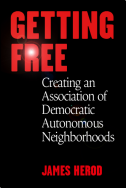
|
|||||||
Three Earlier Books Selected Papers Bibliography (2002) Bits & Pieces Short Takes on Flawed Books Nothing Posted Here Yet Movie Notes Nothing Posted Here Yet Reading Notes Nothing Posted Here Yet
Selected Correspondence Nothing Posted Here Yet |
|||||||
|
|||||||
Essays by other authors Nothing Posted Here Yet Sort by Books by other authors Nothing Posted Here Yet Sort by |
|||||||
|
||||||||
Statement on Cholesterol James Herod Below is a brief explanation of why I refuse to take cholesterol-lowering drugs. 1. The link between cholesterol and arteriosclerosis is a statistical correlation not a causal relation. Some people with high cholesterol levels never develop arteriosclerosis, while others with low cholesterol levels do. Since it has never been established that my arteries are clogged, the many doctors who have been urging treatment on me for the past twenty years are asking me to take a powerful drug to counter a condition they don’t even know that I have. 2. I have never had a doctor explain to me what causes hardening of the arteries. All they ever do is enumerate "risk factors," that is, more statistical correlations, with smoking or obesity, for example. Sure, it makes sense to, and one wants to, reduce risk factors. With smoking, you can quit. With obesity, you can lose weight. The difference, and it’s a big one, between these risks and cholesterol is that with cholesterol the doctors are urging you to take a powerful drug (and also a very expensive one) to eliminate the risk factor, a drug that is potentially very dangerous. Yet there is a very plausible theory out there, about what causes heart disease, namely, the one proposed by Linus Pauling. He argued, and did a number of laboratory experiments to prove it, that arteriosclerosis is an early form of scurvy. It occurs when the walls of the veins and arteries start to disintegrate due to lack of collagen, which in turn is due to deficiency of Vitamin C. The plaques are deposited in order to strengthen these weakened walls. They function to plug up the holes, so to speak, and thus are a life-preserving measure. There is a price to pay however. The plaques can get too big and lead to difficulties and even death in other ways. But of course Pauling is generally dismissed and denigrated by American medicine. 3. I have been taking supplemental Vitamin C ever since 1970, in fairly large amounts since 1985. Therefore I have not been deficient in this vitamin for all that time. I think that my arteries are just fine -- healthy, not diseased. This is why I’m not worried by what some claim to be high cholesterol levels in my blood. I don’t think this is doing me any harm. If someone could prove to me that my arteries are diseased, I would consider taking the drugs, provided they could also prove that my arteries would thereby be restored to health. 4. I have followed the controversy about cholesterol for nearly twenty-five years. I once brought in a list of the articles I had read and presented it to a doctor in the cholesterol clinic here at the Jamaica Plain veterans hospital. He wouldn’t even consider it. He handed it right back to me saying that it was all written for the layman. I explained these ideas, many times over, to my last primary care doctor in Kansas City. He barely even bothered to answer them. So we fell into this little ritual, which went on for seven years, twice a year. I would come in. He would look at my blood work, tell me that my cholesterol was high and that I should be taking drugs, and I would explain that I didn’t want to and why (although for the last several years I left off explaining why). Thankfully I still have the right to refuse drugs. 5. It’s quite possible that the campaign to lower cholesterol levels will go down as one of the great scandals of modern medicine. If Pauling’s theory turns out to be true, it will have been much more than just a scandal; it will have been criminal. The pharmaceuticals have undoubtedly been heavily involved in this. One way to make billions of dollars is to redefine a normal condition to be abnormal and then market a drug to correct it. So now millions of people world wide, but especially in the US, are taking drugs to lower their cholesterol levels. A book has recently appeared which lends support to beliefs that I have long held -- Uffe Ravnskov, The Cholesterol Myth: Exposing the Fallacy that Saturated Fat and Cholesterol Cause Heart Disease (2003, 320 pp, New Trends Publishing). Note added later. ----------- PS. This was written for my primary care doctor at the Veterans Administration hospital, who couldn't bother himself to read it. |
||||||||
